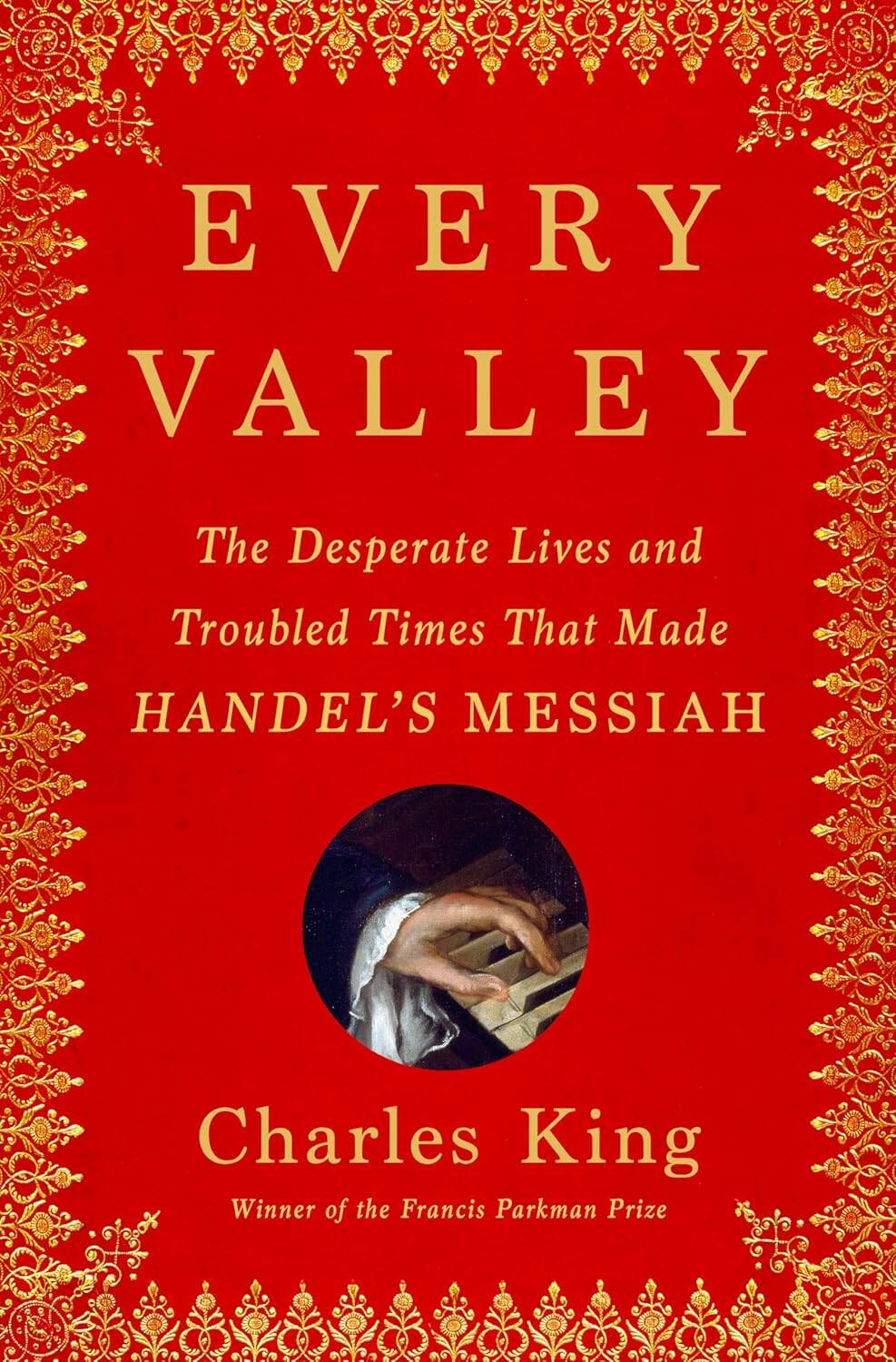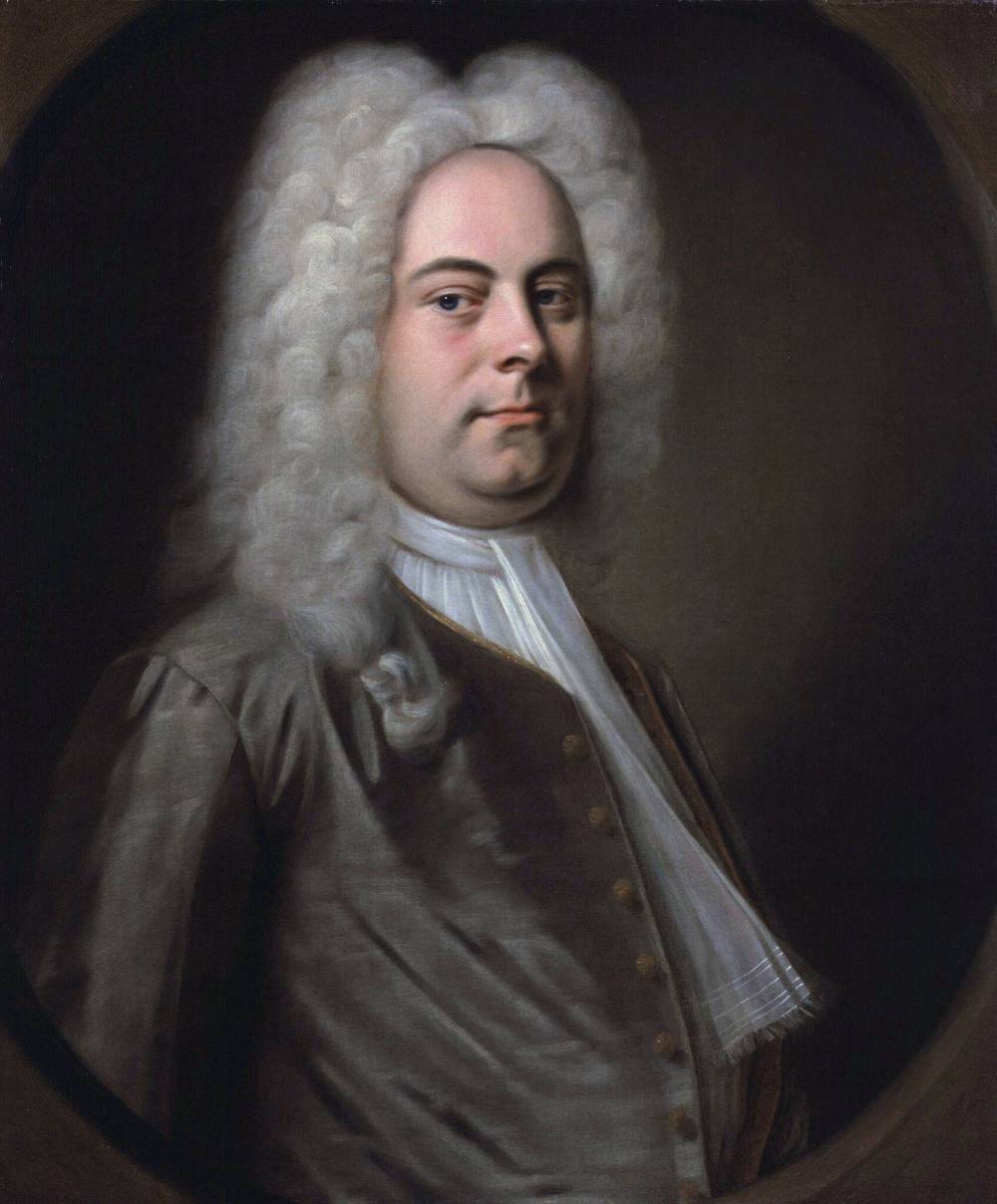The history of ‘HALLELUJAH!’
Chronicle of Handel’s beloved Christmas oratorio lands just in time for the holidays
Advertisement
Read this article for free:
or
Already have an account? Log in here »
To continue reading, please subscribe:
Monthly Digital Subscription
$0 for the first 4 weeks*
- Enjoy unlimited reading on winnipegfreepress.com
- Read the E-Edition, our digital replica newspaper
- Access News Break, our award-winning app
- Play interactive puzzles
*No charge for 4 weeks then price increases to the regular rate of $19.00 plus GST every four weeks. Offer available to new and qualified returning subscribers only. Cancel any time.
Monthly Digital Subscription
$4.75/week*
- Enjoy unlimited reading on winnipegfreepress.com
- Read the E-Edition, our digital replica newspaper
- Access News Break, our award-winning app
- Play interactive puzzles
*Billed as $19 plus GST every four weeks. Cancel any time.
To continue reading, please subscribe:
Add Free Press access to your Brandon Sun subscription for only an additional
$1 for the first 4 weeks*
*Your next subscription payment will increase by $1.00 and you will be charged $16.99 plus GST for four weeks. After four weeks, your payment will increase to $23.99 plus GST every four weeks.
Read unlimited articles for free today:
or
Already have an account? Log in here »
Hey there, time traveller!
This article was published 23/11/2024 (361 days ago), so information in it may no longer be current.
Handel’s Messiah could be its own religion if it didn’t already have one.
The world-famous choral masterpiece has a doting audience in the millions every Christmas either singing it, listening to it in-person or hearing it on records, radio, streaming services or TV. It is without a doubt Christianity’s most glorious calling card.
This oratorio is not just music. To many it’s a close friend, a lyrical guide to a higher power or simply a kickstart to happiness.
Mike Sudoma / Free Press files
Nathan Poole conducts a portion of the 120 person choir as they sing pieces from Handel’s Messiah during their rehearsal at Covenant Christian Reformed Church Wednesday evening
Therefore, it’s proper that Messiah’s life is told in Every Valley by a respected storyteller named Charles King, author of eight books and a professor of international affairs and government at Georgetown University in Washington. It deserves no less than it gets — a writer who, like an investigative journalist, is unintimidated by his subject and determined to exhaust it for the truth.
“The work of music we now call Handel’s Messiah has a good claim to being the greatest piece of participatory art ever created,” says King. “It is heard and sung by more people every year than arguably any other piece in the classical repertoire, from legendary soloists joining renowned orchestras and choirs to strangers singing together from their seats.”
King explains that because genius does not function in a vacuum, he set out to find the people, events and things that directly and indirectly affected Handel’s creative output and the introduction to the world of the results. They include a sea captain, a penniless philanthropist, one English queen and two English kings — not to mention a prodigious amount of research in five countries, including “hacking through underbrush to find a lost temple of love…”
One of the world’s greatest pieces of music ever created is as much a mainstay of Christmas as turkey and antacids. It is the only music other than a national anthem that obliges an audience to stand up when it gets around to the most salutary part: the Hallelujah chorus. An old king (the royal kind) started it, so the story goes.
“For a good portion of the planet,” says King, “experiencing the Messiah, especially at the end of the calendar year, has become the most sacred act that a mass secular audience will ever undertake together.”
Mike Sudoma / Free Press files
Author Charles King says Handel’s Messiah, sung here by a 120-person choir at Winnipeg’s Covenant Christian Reformed Church in 2019, has ‘a good claim to being the greatest piece of participatory art ever created.’
Unbelievably, an unhealthy Handel composed it in 1741 in 24 days. It originally was for Easter.
The name the writer King selected for his engaging book, Every Valley, is from Messiah’s tenor aria, Every Valley Shall Be Exalted.
King says Handel’s “central theme is religious and specific — for Christians the cosmic meaning of the prophetic birth, suffering and resurrection of Jesus Christ.” Handel was unique in that his music was intended not just to entertain, but also to enlighten.
Every Valley is also about an emotionally troubled, very rich eccentric named Charles Jennens. One day in 1741, Jennens began pulling books down from his library shelves. He spent days copying down quotations he selected from scriptures.
“He linked up one passage with another, editing and rearranging them, tying together themes that leaped out at him from the text,” King explains.

Every Valley
When he finished, Jennens had before him “a kind of dramatized philosophy” that foretold a better world and “the hidden order of living” that could be comforting. He called it his “Scripture Collection.”
Jennens thought a performance would better present his thinking than a dry, learned dissertation. At the same time, he worried that if what he wrote became public it could well be judged as “folly.” Regardless, he sent his material (and a host of notes) to Handel in London and asked him if he could see any use for it. The two were well-known to each other; Jennens had already partnered with Handel on several productions as his librettist.
Says King: “Committing his ideas to paper would end up being the most enduring act of Charles Jennens’s life, and something Jennens had always had a hard time believing: the staggering possibility that the world might turn out all right. ”
King delves at length into the artistic, social and political forces in Handel’s time — the appalling living conditions of the poor in London, the shocking mortality rate, the filth and the widespread use of child labour.
The Messiah phenomenon is so pervasive even atheists enjoy it, sometimes people who can’t really sing are placed in the back rows of the chorus and discreetly told to mouth the words and in a great many presentations the duet O Death Where is Thy Sting? is left out because nobody’s up to it or they simply don’t like it.
Mike Sudoma / Free Press files
Despite having been originally written for Easter, Handel’s Messiah has become a beloved Christmas mainstay.
King concludes: “The Messiah’s form is a Christian story of God’s plan for humanity’s salvation. Its substance, however, is the struggle to think ourselves toward hope.”
The man who started it all, Charles Jennens, never became famous and likely didn’t want to be.
Some 283 years ago Jennens had an itch. Handel scratched it.
Barry Craig is a retired journalist.
The WSO and the Canadian Mennonite University Festival Chorus present Handel’s Messiah Dec. 12-14 at Knox United Church (400 Edmonton St.). For more information and to buy tickets, see wfp.to/AZD.


